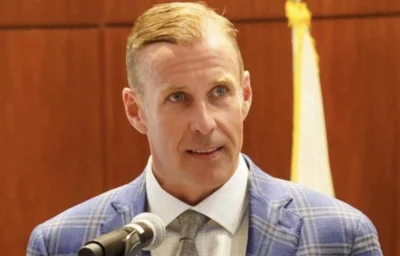Rusty Stevens, owner/operator of Rustle Vending | Rusty Stevens
Rusty Stevens, owner/operator of Rustle Vending | Rusty Stevens
The past few years have seen a relentless rise in food costs, impacting everyone's wallets. We all have our strategies to stretch our grocery budgets, from eating out less to seeking bargains and bulking up meals.
My experience, however, offers a unique perspective on this issue. As the owner and operator of a small vending machine business, I've witnessed firsthand the dramatic increase in wholesale food costs. Over the past three years, these costs have skyrocketed by 50% to 100%. Candy that once cost 62 cents is now 99 cents, pastries have gone from 60 cents to over a dollar, and 12-ounce sodas that were 27 cents now regularly exceed 80 cents. These price hikes inevitably affect what I charge my customers.
My clientele is diverse, ranging from medical buildings and trucking companies to warehouses and manufacturing facilities. During the COVID lockdowns, sales in medical and office buildings plummeted, with only cleaning crews remaining as customers. Some buildings even faced closure or demolition. Despite these challenges, I initially resisted raising prices. However, continued inflation ultimately forced my hand, as I needed to ensure the survival of my business.
While raising prices, I strived to remain competitive and mindful of my customers' financial constraints. This has inevitably impacted my profit margin. We've all seen our purchasing power diminish. What was once a carefree indulgence, like a candy bar or soda, now requires careful consideration. Consumers are forced to prioritize their budgets, asking themselves: "Can I afford this snack if it means sacrificing necessities like gas, utilities, or rent?"
This is not just a personal struggle; it's a widespread consequence of poor leadership. When making crucial decisions, such as voting, it's essential to consider the impact on your personal finances and ask yourself: "Can I afford the choices being made?"




 Alerts Sign-up
Alerts Sign-up